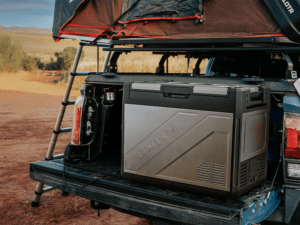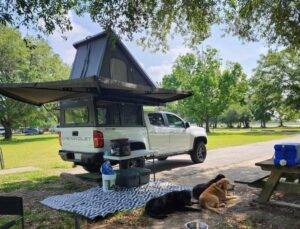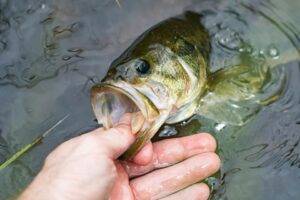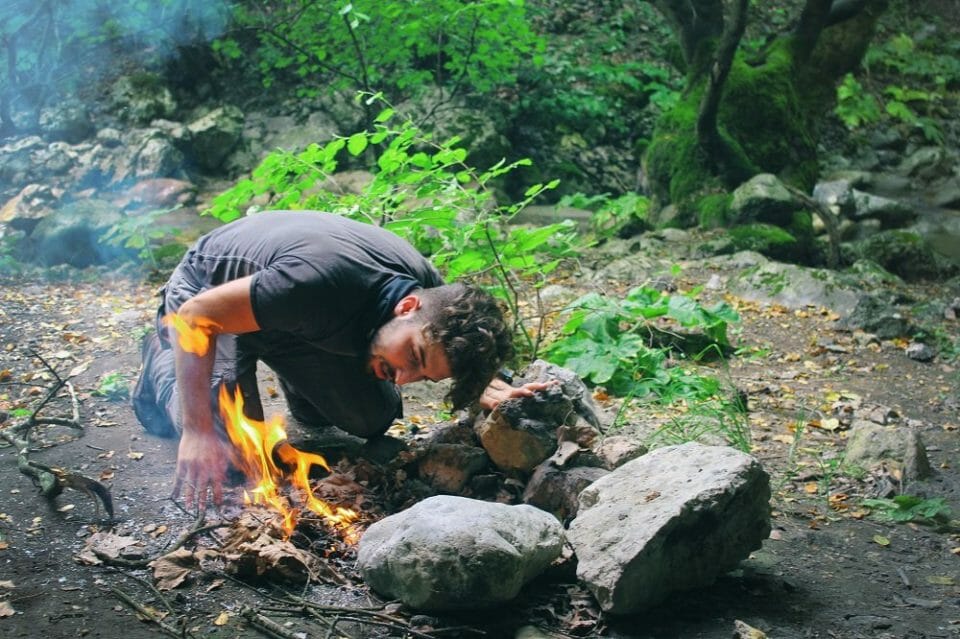
You may think you know a lot of survival skills. But what would happen if you were stranded outside in the woods with no phone and no shelter? When the sun begins to set, you’ll really be in dire need of some survival skills. No matter where you live, or how much you think you know about surviving in the wilderness, you’ll need these top 10 outdoor survival tips to keep you alive.
-
Learn to Build a Fire
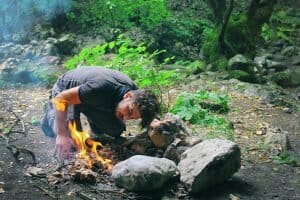 Building a fire is essential to surviving in the wilderness. The main components of a fire include:
Building a fire is essential to surviving in the wilderness. The main components of a fire include:
– Wood in different sizes (from pencils to toothpicks)
– Tinder
– Bundle of dry materials (cotton balls work great!)
Light the larger-sized wood first, and then add the smaller kindling to it. This will keep your fire going for your warmth and cooking needs.
-
Build a Shelter Right Away
Shelter is by far the most important survival skill needed when in the wild. A lack of shelter is the number one killer, even above thirst and hunger. In order to build a shelter, you can simply look for a downed tree or some branches that you can set at an angle against something. This is known as a lean-to, and can be insulated with moss or leaves to keep you safe during the night.
-
Look for Drinkable Water
It may be tempting to drink from the first lake or brook you see, but this can be extremely dangerous. If you are able to boil the water first, then you can drink it. But during the moments when there is no boiling available, you can only rely on rain or dew water. Collect this with a bandana or plants.
-
Get Blades and Craft a Spear
If you’re going to be in the wild for awhile, you’re going to have to make yourself some tools to hunt with. It would be ideal if you already had a knife with you to help make the process smoother.
Ideally, you’ll want to put together a preparation kit beforehand so that you have plenty of blades at your disposal. One of the most useful tools to have when stuck in the wild is the best machete. These wide blades can cut down anything, including wood for you to make into a spear. Get the best survival machete to increase your chances of survival. This blade is great for chopping down thick branches and crafting the fat ends into a spear.
Spears can be used to kill fish, snakes, or bugs for sustenance. You can even hunt small mammals if there are any around.
-
Find Edible Plants
There are so many plants in the wild. Which plants are edible? Which will kill you? You must start reading up on which plants can help you to survive. The only way to go about this is to start memorizing and reading up on the variety of edible plants available. Soon, you will be able to identify them in the wild.
-
Follow the Northern Star
This may seem like something from a myth, but it’s really true – the best way to navigate at night is by following the North Star. If you are facing Polaris, you are headed to True North. That way, you will never get lost when trying to figure out your cardinal directions.
-
Follow the Sun
Much like the Northern Star at night, the sun is a great way to navigate by day. Always remember that the sun rises in the east, and sets in the west. Use this to find your horizon line, and you’ll be able to travel in any direction you want.
-
Learn how to Tie Knots
The most important knot to know how to tie is the bowline. Do this, and you can fasten your rope or twine to anything. A bowline knot will tighten the harder it pulls, making it the ideal knot for carrying a lot of weight.
-
Seek a Campsite
When in doubt, try to see if there are any nearby campsites. You might get lucky and come across a spot that is hollowed out to offer some form of shelter, fresh water, or even another person to talk to.
-
Send Up a Signal
If you’re truly stuck in the wild, you may feel like you will be stranded forever. You can send a variety of signals to help others locate your position, including:
– A signal fire
– make sure to make lots of smoke!
– A mirror that you can flash during day or night- The ability to make signals can mean life or death for you.
After reading these 10 outdoor survival skills, you should brush up on the extras. Make yourself a 72-hour emergency care package in the event that something devastating happens. Teach your friends and family about these survival skills too, so that they can increase their chances of living through a stranded situation. Living in the wild is tough, but as long as you can grasp the basics, you have a strong chance of survival.

